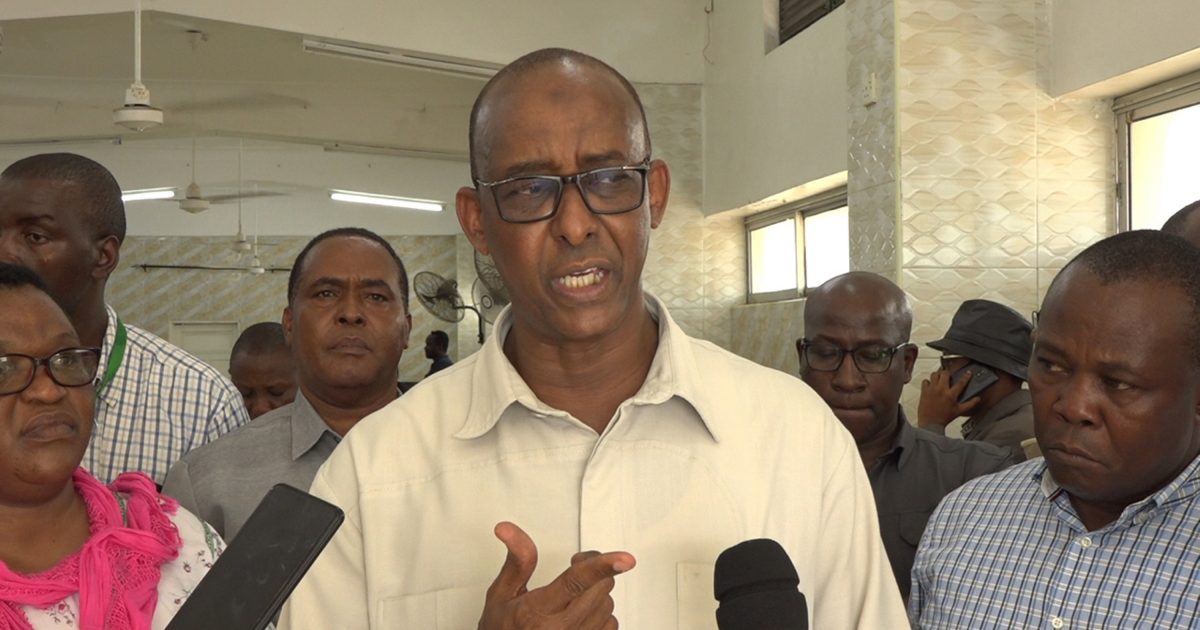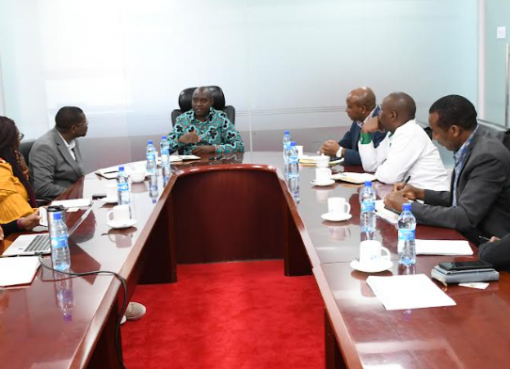The State Department for Lands and Physical Planning has improved revenue collection following the introduction of cashless payments for land transaction services in parts of the country, an official said Wednesday.
Mr Mohamed Ahmed Maalim, the Secretary for Administration State Department said that digitization of land records and automation of revenue collection had proved to be a game changer in tackling the menace of double land allocations and poor revenue collection.
“In the last four to five months since we introduced cashless revenue collection, the revenue is three times the amount we used to collect before automation in those stations, meaning that we have been able to seal the loopholes that existed,” he said adding, “The next station we intend to automate is Mombasa.”
He said this at the Nidhamia Hall in Malindi town during a public participation forum on the proposed Land Laws (Amendment) Bill 2023 and the Review of Land Sector Regulations.
The forum was attended by representatives of all the six coastal counties – Mombasa, Kwale, Kilifi, Tana River, Lamu and Taita Taveta – and facilitated by senior officials from the State Department in the Ministry of Lands, Public Works, Housing and Urban Development.
The administrator said the Ministry was gearing towards digitizing all government records country-wide in order to make land transactions easier and urged Kenyans to embrace e-citizen services as instructed by President William Ruto.
Mr Maalim at the same time defended the proposed new land transaction fees, noting that the current charges had not been reviewed for a long time and can no longer enable the ministry to provide efficient services due to the harsh economic conditions.
“These proposals were not just made by the Ministry of Lands. This is a product of consultative meetings with various stakeholders which resulted in the draft bill and regulations and since public participation is mandatory, wananchi must read the proposed laws and regulations and give us their feedback,” he said.
He said the State Department had provided the proposed laws and regulations in its website for Wananchi to read them and give back their views before November 26 and assured them that Kenyans’ views will be taken into consideration.
“We are aware that the cost of living has gone up, but as a country, we must look for ways of being self-reliant,” he said.
On the squatter menace in the Coast Region, Mr Maalim said the government had set aside Sh1 billion to purchase land from genuine landlords and settle the landless.
“The President has said that in the Coast region, which has suffered the squatter menace for eons, he will avail Sh1 billion to buy land from landlords and settle the squatters,” he said.
He said that the Ministry would formalize the settlement of Kenyans living on government land or on land belonging to absent landlords but after following due diligence and the law.
“Where there are squatters on land genuinely owned by individuals, we will have to negotiate with those individuals so that the government can buy that land to settle its people,” he said.
His sentiments were echoed by Acting Chief Land Registrar David Nyandoro, who said the government would look into the rights of both the landless and land owners with a view to come up with amicable solutions.
“It is not the intention of the government for wananchi to be evicted from where they are living because other people have documents. On the same note, it is not the government’s intention to exploit someone with genuine land ownership documents,” he said.
He however said the Ministry will implement the president’s directive to solve the squatter question in the Coast Region once and for all, through negotiation and formalisation of settlement in accordance with the law.
Bishop Joseph Maisha of Ushindi Baptist Church in Mombasa, who spoke on behalf of the stakeholders, lauded the government for initiating land reforms that he said could resolve the nagging squatter menace in the Coast region, and for allowing Kenyans to give their input in the proposed laws and regulations.
“Even though there is a genuine cry that the cost of living has gone up, we need to cooperate with the government to ensure that this problem that has affected our region is solved once and for all,” Bishop Maisha said.
Participants who spoke during the forum were divided on the proposed land transaction charges with some saying the proposals were fair and others saying they were punitive and could be counterproductive.
By Emmanuel Masha




